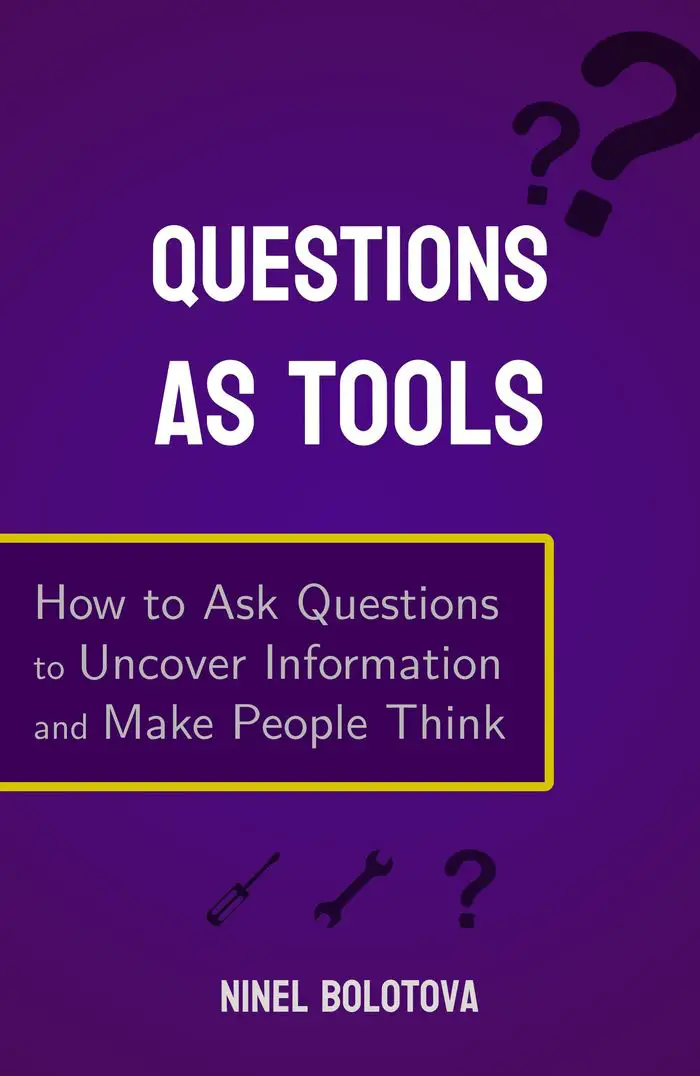Impostor Syndrome: How to Overcome It for Good?
Impostor syndrome is more common than you might think. For all you know, over half of your friends and colleagues might be experiencing it – and saying nothing, because, of course, they don’t want to be outed as impostors.
The impostor phenomenon could be a big impediment to your career growth – or worse.
Being reluctant to raise your rates or ask for a promotion is one thing. But when a person works in an environment they hate, feeling like they got to that position by chance, and things will only get worse for them if they leave – that is dangerous for mental and even physical health.
Who is at risk of developing impostor syndrome? Do you already have it? And how do you prevent or overcome it?

photo by @mikhail-nilov on Pexels
Defining the impostor syndrome. Is it a diagnosis?
While both of those words sound menacing, “impostor syndrome” is not an official diagnosis of any kind. Let’s break it down.
Impostor – often spelled as “imposter” – is a person who pretends to be someone else for some illegal gain.
Syndrome is a condition characterized by a set of associated symptoms.
So you’re experiencing the impostor syndrome if you feel you’re occupying the place of someone else – someone more experienced or talented. The recognition and pay you receive aren’t yours to take.
This brings constant anxiety or fear that one day, everyone will see through the facade, and everything you didn’t “rightfully” obtain will be taken away from you.
Related: How to handle workplace criticism.
Impostor syndrome symptoms and red flags
The following puts you in the risk group for impostor syndrome:
- Self-doubt. Am I doing it right? Did I screw up and just don’t know it?
- Comparing yourself to the top 1%. Or even 0.01%. Holding yourself to unrealistically high standards.
- Feeling icky when someone praises you. Feeling like you’re given a gift that’s way too expensive, or that they’re secretly mocking you.
- Framing things in terms of failure. If something works out for you, you’re relieved that you didn’t fail this time. If you do fail at a certain point, you’re also relieved because “you knew it”, and your worldview is confirmed.
- Seeing every failure as a personal failure. If something goes wrong, it’s not just a botched task – it’s yet another proof that you’re not cut for this. This indicates a fixed mindset, the opposite of a growth mindset.

photo by @kovyrina on Pexels
Do women experience impostor syndrome more than men?
Dr. Valerie Young is an expert on impostor syndrome, organizing seminars on the subject since the 80s.
In her book about battling impostor syndrome, Dr. Young recounts that her first seminars were mostly attended by women, but in later years, there were more and more men. For the college students, the ratio went up to 50/50.
As societal expectations changed during those decades, women were facing fewer obstacles and became more confident in pursuing technical or high-level managerial jobs and changing their careers.
This reduces the absolute number of women with impostor syndrome. But the relative ratio of women to men is also reduced – does it mean more men started feeling like impostors?
Of course, this just means that more and more men are openly confronting this kind of issue.
Why do I feel like a fraud? Causes of impostor syndrome
Here are some of the underlying reasons of the impostor phenomenon.
1. External attribution bias.
The usual bias is attributing achievements to one’s own skills while explaining failures with unfavorable circumstances. I.e. “I scored well on the math test” but “The math professor gave me a bad grade”.
But with impostor syndrome, the positive occurrences are also explained by lucky coincidences, people sympathizing with you or taking pity, and other external circumstances.
2. Low self-esteem.
Who? Me? There’s no way I can be that good.
3. Having to “deserve” everything.
The notion is that all good things in life come with hard work. If it came without substantial effort, something is probably wrong, and you’ll learn it the hard way. Easy come, easy go.
Whether or not you “deserve” it is based on someone’s subjective standards and judgment.
4. The burden of unrealistic expectations.
Internal expectations: Having a certain image of a person who “should” be in this role and worrying that you don’t fit.
External expectations: Feeling that others mistakenly see you as more qualified than you actually are, and worrying that you can’t deliver.

Does impostor syndrome only manifest itself at work?
The workplace and professional environment are where most people experience impostor syndrome.
It could happen in personal relationships, too. You might feel that people like you just because they don’t really know you.
It’s easier with friends: you can openly ask your friend or partner, in genuine bafflement: “What is it that you like about me?” They’ll probably think you’re cute, support and reassure you. And, after all, you can always chalk your friends’ sympathies up to their quirky personal preferences.
But the workplace has some objective, established standards, does it? There, you’re judged by the collective – or so it seems.
Feeling like a fraud is not about fighting an uphill battle, trying to prove something to people who vocally doubt you. That would mean you’re already exposed, so you wouldn’t have that fear of being caught.
Impostor syndrome always comes from within.
Also, at work, you could absolutely ask your colleagues or superiors for feedback – what they think is being done well, and what could be improved.
Related: How to find a sustainable work-life balance.
Impostor syndrome treatment: practical steps
At its core, impostor syndrome is irrational: a person could experience it even despite the concrete evidence of their achievements.
So, it might be hard to beat it with logic, but we’ll try. Breaking things down and dealing with them step by step would help with bringing the inner demons out into the light and dissecting them.
1. In which particular aspect are you an impostor?
Define a role where you feel like an impostor: it could be your job title, your social role, and so on. For example:
“I feel like an impostor as a project manager.”
2. Define which skills and characteristics a “real” someone would have in this role.
“A legitimate project manager would…”
It might not be easy to describe, but that’s the point. You have to put your vague fears and reservations into words, define them and face them.
The items on your list must be as specific as possible. “Talented” is subjective and vague. “Hard-working” is more specific, but working hard in and of itself doesn’t define someone’s competency or success.
Related: Factors that multiply your life success.
3. Once you have that list, ask yourself the following:
- To which extent do I have those skills and characteristics?
- In which way can I improve them?
- How can I measure the improvement?

photo by @elijahsad on Pexels
The mindset for getting rid of impostor syndrome
The impostor phenomenon originates in your mind, so that’s where you have to beat it. Consider the following and try shifting your perspective.
You might not be the “best”. So what?
Being “subpar” has at least two flavors.
- Being worse than average.
Since 100% it’s not a number on an absolute scale, by definition, everyone can’t be there. If, say, there are 20 tasks, and 90 out of 100 people can do 19 of them correctly, you’ll end up in the lower 10% even if you can do 18 tasks.
If 90 out of 100 people can only do up to 8 tasks correctly, you’ll be in the top 10% even if you manage to do just 9 tasks.
So, are you better than 50% in your particular area of interest, or not?
It’s hard to know what the “average” is. But if you mostly get a neutral-to-positive reaction to what you’re doing, you could rest assured that you’re at least above average in that field.
- Being worse than the best.
But impostor syndrome isn’t actually thinking of oneself as “bad” but “not as good as I should’ve been”.
Maybe you’re as good as 65% of people in that field but want to be at least at 80%. Or you’re at 80% but upset that you’re not at 90+%.
Perhaps those extremely talented and professional people do exist. But people around you have to deal with what they get.
Instead of chasing unicorns, they deem you “pretty competent”, probably even better than they expected – remember, even if you’re at 70%, most of the time they encounter people who are less competent than you. What they’re saying is true, and you being where you are is justified.

photo by @ds-stories on Pexels
Put the focus beyond yourself
In many materials on battling impostor syndrome, the rhetoric goes:
“You might be thinking that you’re lacking, but you’re actually more amazing than you can imagine!”
But I’m not going to try to convince you. The opinion I hold is:
“You’re great. It’s not a theory we have to prove. It’s a constant. Non-negotiable. So let’s move on.”
Shift the focus to other people, observe them, with their unique skills and drawbacks, experiences and peculiarities.
You know your worth. Stay humble, stay curious.
Luck is just the first step
Yes, there could be some fortunate coincidences. But how you proceed with acting on it fully depends on your personal and professional skills.
Types of impostors: The Expert
In her aforementioned book on impostor syndrome, Dr. Valerie Young defines 5 types of impostors: the Perfectionist, the Superhuman, the Natural Genius, the Soloist, and the Expert.
I’ll only stop at the last one.
An “expert” actually feels that they can’t be called an expert unless they have all the answers.
If they don’t have an answer, they feel like a fraud. So, they keep taking courses and obtaining certifications to stay at the top of the requirements they impose upon themselves.

photo by @studio-naae on Pexels
Professional certifications: useful, fun, or just a form of procrastination?
The “courses and certifications” part stroke a chord with me.
For the Expert-type impostor, constantly obtaining credentials is a way to justify their status.
For me, it’s a fun challenge, first and foremost.
I have a few core certifications, like PMP and PSM. Sometimes I look at all the certifications out there longingly, like one looks at designer bags in the store window. But their initial cost and, importantly, the certification maintenance requirements keep me from hoarding them.
However, if there’s a chance to pass a professional certification for free – or at least to get a similar experience – I surely take it. This way, I experimented with passing all PRINCE2 certifications and obtained the ClickUp expert certificate.
Like jigsaw puzzling and other fun activities that are good for the brain, preparing for an exam will be a great mental exercise that would give you new perspectives and help with improving your skills.
Gaining knowledge is great.
But even otherwise positive and productive things could be a form of procrastination if you’re investing your time in them instead of tackling your pressing, high-priority issues.
“Not having enough qualifications” could also be an excuse to stay away from taking on projects or roles, to avoid failing or being defrauded.
I do think obtaining certifications is always a good idea, but you need to be conscious of why you want to take the certification exam.
Does learning and improving your skills helps you get rid of the impostor syndrome?
The heading above was supposed to be a statement, but learning about the Expert-type impostor gave me pause.
Indeed, no matter how much you learn, if it’s coming from the need to compensate for an insufficiency, it won’t help. The more you learn, the more you realize you don’t know. If anything, this might make the impostor syndrome even worse.
In and of itself, obtaining information is not a cure. Expanding your horizons, however, would be quite beneficial.
As you learn more about your field, about related fields, and about other areas you’re interested in – it helps you gain more perspective.
Organizing study groups or mentoring others will show you that you’re not alone in your quest for competence, that your skills and expertise are actually on par, and will help you hone them further.
Related: 30-day self-improvement challenge.
Is it possible to fully overcome impostor syndrome? And is it necessary?
Some self-doubt is healthy – we should question our decisions to come up with better solutions and improve. But this self-doubt shouldn’t trigger analysis paralysis and hinder our progress.
We need to be confident enough to take on challenges, but not to the point of feeling invincible and omniscient.
If you succeed in beating the syndrome, you won’t be feeling like an impostor any longer – you’ll just be a human. Humans make mistakes. But they learn from their mistakes and improve.

 Ninel Bolotova, PMP, is a workflow expert setting up and automating processes in ClickUp, Trello, Notion, Monday and other PM tools. She enjoys challenges related to process setup, automation and optimization.
Ninel Bolotova, PMP, is a workflow expert setting up and automating processes in ClickUp, Trello, Notion, Monday and other PM tools. She enjoys challenges related to process setup, automation and optimization.